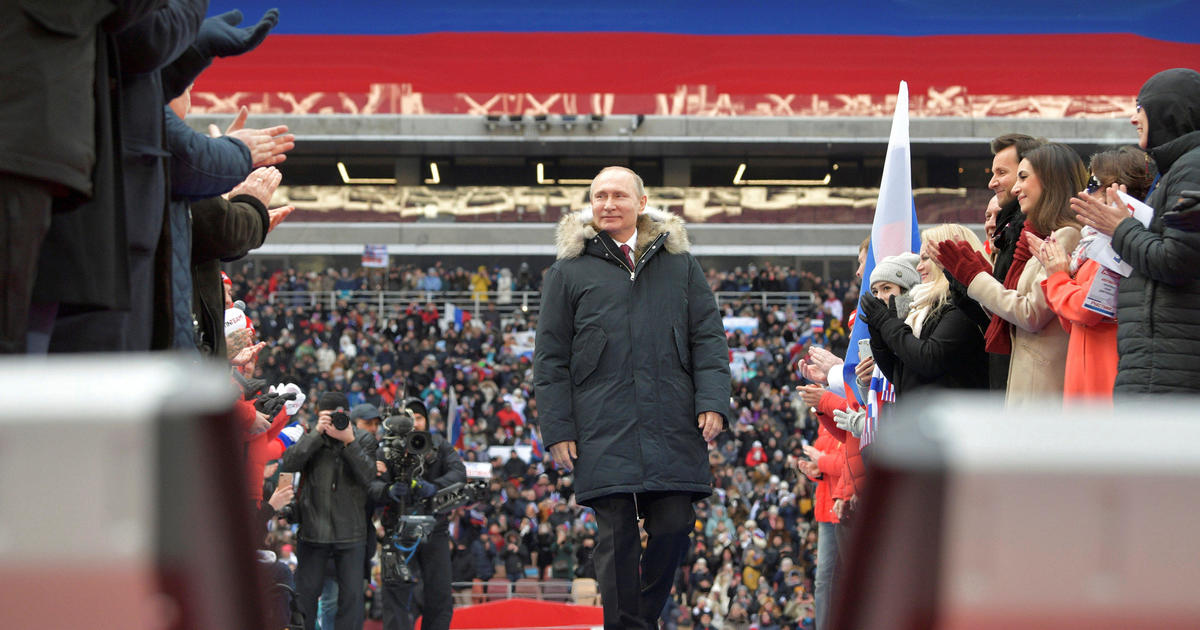
MOSCOW — An exit poll and early returns suggest that Vladimir Putin handily won a fourth term as Russia’s president Sunday, adding six years in the Kremlin for the man who has led the world’s largest country for all of the 21st century. The vote was tainted by widespread reports of ballot-box stuffing and forced voting, but the complaints will likely do little to undermine Putin.
The Russian leader’s popularity remains high despite his suppression of dissent and reproach from the West over Russia’s increasingly aggressive stance in world affairs and alleged interference in the 2016 U.S. election.
Putin’s main challenges in the vote were to obtain a huge margin of victory in order to claim an indisputable mandate. The Central Elections Commission said Putin had won about 72 percent of the vote, based on a count of 22 percent of the country’s precincts.
Russian authorities had sought to ensure a large turnout to bolster the image that Putin’s so-called “managed democracy” is robust and offers Russians true choices.
CBS News’ Elizabeth Palmer called the race an exercise in “managed democracy.” Putin faced seven minor candidates on the ballot. There was one man who might have given Putin a run for his money in this election: Alexei Navalny, an anti-corruption activist who was harassed in the run-up to the election. He was ultimately barred from the race.
The election came amid escalating tensions between Russia and the West, with reports that Moscow was behind the nerve-agent poisoning of a former Russian double agent in Britain and that its internet trolls had mounted an extensive campaign to undermine the 2016 U.S. presidential election. Britain and Russia last week announced diplomat expulsions over the spy case and the United States issued new sanctions.
Russian officials denounced both cases as efforts to interfere in the Russian election. But the disputes likely worked in Putin’s favor, reinforcing the official contention that the West is infected with “Russophobia” and is determined to undermine Putin and Russian cultural values.
Putin has come to embody Russia’s exceptionalism, the sense of the state and culture as an extraordinary entity that is nonetheless under constant attack from outside.
The election took place on the fourth anniversary of Russia’s 2014 annexation of Crimea, one of the most dramatic manifestations of Putin’s drive to reassert Russia’s power.
Crimea and Russia’s subsequent support of separatists in eastern Ukraine led to an array of U.S. and European sanctions that, along with falling oil prices, damaged the Russian economy and slashed the ruble’s value by half. But Putin’s popularity remained strong, apparently buttressed by nationalist pride.
In his next six years in office, Putin is likely to assert Russia’s power abroad even more strongly. Just weeks before the election, he announced that Russia has developed advanced nuclear weapons capable of evading missile defenses. The military campaign in Syria is clearly aimed at strengthening Russia’s foothold in the Middle East and Russia eagerly eyes possible reconciliation on the Korean Peninsula as a lucrative economic opportunity.
At home, he will be faced with how to groom a successor or devise a strategy to circumvent term limits, how to drive diversification in an economy still highly dependent on oil and gas and how to improve medical care and social services in regions of the sprawling country far removed from the modern glitter of Moscow.
Casting his ballot in Moscow, Putin was confident of victory, saying he would consider any percentage of votes a success.
“The program that I propose for the country is the right one,” he declared.
© 2018 The Associated Press. All Rights Reserved. This material may not be published, broadcast, rewritten, or redistributed.

